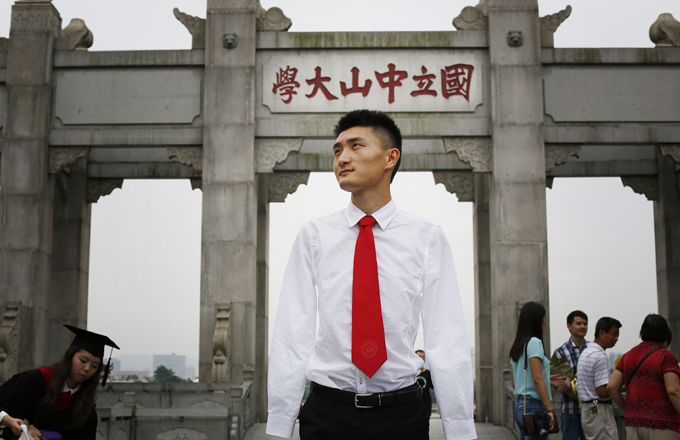Freight challenge ahead for railways
China Railway Corporation has introduced reforms, aimed at improving efficiency and providing better services, in a bid to transform the company's freight transport into a modern logistics business.
CRC has good reasons to start its pilot reforms of freight transportation, as it not only has the responsibility for commercial operation of the railways, but also has taken on the debts of the former Ministry of Railways after the government dismantled the ministry into administrative and commercial arms in March. The audit report of the Ministry of Railways last year showed that the ministry had debts of 2.79 trillion yuan ($455.2 billion), and the debt ratio was 62.2 percent.
Although CRC's debt pressure is not that heavy compared with other State-owned companies in other industries, the ever-approaching debt repayment peak, which some experts predict is likely to come between 2017 to 2019, has forced the corporation to carry out market-based reforms in order to boost its profitability.
For years freight transportation has been a major source of railway revenues, but the volume of rail freight began to shrink in the second half of last year due to the country's economic slowdown and fierce competition from air and road freight carriers. From January to April, while the national freight volume increased, national freight shipments by rail dropped 1.5 percent year-on-year. So reform of freight transportation by rail was imperative for the newly born China Railway Corporation.
Compared with other means of freight transport, price is the railways' biggest advantage. However, extra charges arising from the multiple links in the whole transportation process increase the cost of rail freight transportation remarkably and undermine its cost advantage. Cheng Xiandong, head of the transportation bureau of CRC, said that in this reform the corporation will maintain the current low freight transportation prices, cancel the former multi-link charging model and set fixed and standardized prices for freight transportation, in a bid to regain its competitive edge.
Poor service standards have long been a problem with freight transportation by rail. In the planned-economy era rail transport was a scarce resource, and enterprises had to request or even scramble for freight to be transported by rail. But facing fierce competition from road and air freight carriers the CRC knows the importance of raising its standard of service. The first requisite for a market-based operation is providing a customer-friendly service. The railway corporation's reform means a better service for customers as it simplifies the acceptance procedure and optimizes the transport mode on demand.
Sheng Guangzu, general manager of the China Railway Group Ltd, stressed the significance of a "door-to-door" freight transportation logistics service at a CRC meeting on April 12.
There is already successful international practice of "door-to-door" rail logistics service that the CRC can look to for inspiration. In the 1990s, the German railways holding company Deutsche Bahn AG established a German rail freight company and began to explore a combined freight transportation mode. It has gradually created a "door-to-door" railway-highway service, which has made the company one of the leaders in global logistics.
A "door-to-door" logistics strategy and transportation of goods besides coal, petroleum, minerals and construction materials will be crucial if the CRC is to compete successfully in the logistics market.
The reforms show CRC's willingness and determination to make a market-based transformation, but several challenges lie ahead. Transportation of "the last kilometer" by highway is the CRC's weak point, and it directly determines the efficiency and quality of a "door-to-door" logistics service. Moreover, although the CRC's reforms this time will not raise the price of freight transportation by rail, fluctuating prices are both reasonable and unavoidable if the CRC really plans to operate according to market forces. The market and society are waiting to see the reform's effect and the CRC's next moves.
The author is a writer with China Daily.



















